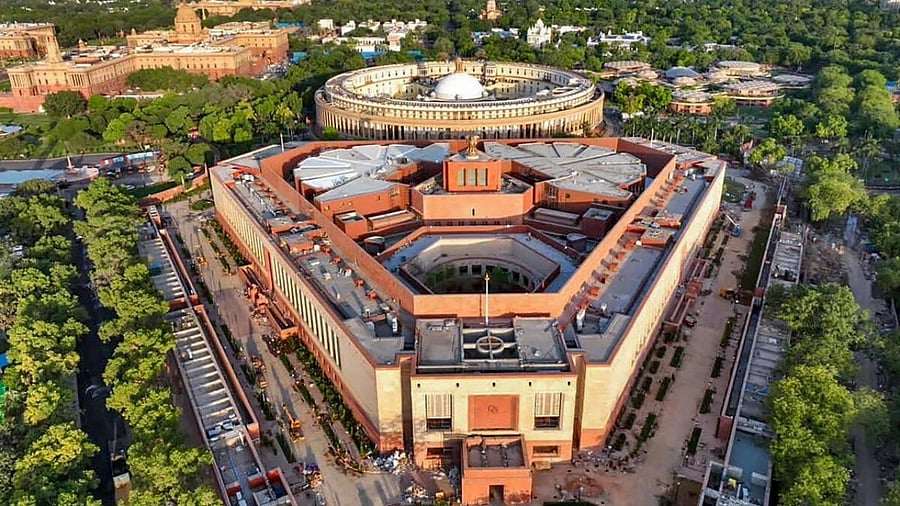
File photo of India's Parliament building.
Credit: PTI Photo
India is headed for the 2024 Lok Sabha elections to determine the legislators of the country for the next five years. Prime Minister Narendra Modi, who is vying for a third term, often calls India the "mother of democracy", not only within the country, but also in international summits. He reasserted this claim in the 2023 Summit for Democracy hosted by the US, the Netherlands, Costa Rica, South Korea, and Zambia.
In this context, and considering the biggest festival of democracy in the world is knocking on our doors, here we shall try and understand what a parliamentary democracy is and how it is different from other types of democracy.
What is a democracy?
Democracy is a form of government in which the power is vested on the general populace to elect their representatives. There are types of democracies like a parliamentary democracy (UK, India), a presidential democracy (US, France), a Jacksonian democracy, direct democracy, and others.
What is a parliamentary democracy?
A parliamentary democracy is a form of government where citizens elect representatives to form the legislative body. The executive branch of the government derives its authority from the legislature and can be removed from power through no-confidence motions in parliament.
In most parliamentary democracies, the head of government is referred to as the prime minister. Unlike presidential democracies where the head of state is elected directly by the people, the prime minister is appointed by the political party or alliance that secures a majority in general elections. This close relationship between the executive and legislative branches provides stability but can also lead to deadlocks or conflicts between the two branches of government.
How is parliamentary democracy different from other forms of democracy?
The crucial difference between parliamentary democracy and other forms of democracy is that in this case the head of the government is not directly elected by the people. Here, the executive branch of the government is answerable to the legislative branch. On the other hand, in presidential democracies, both the executive and the legislature are directly elected by the people.
In direct democracies, citizens are directly involved in the government's decision-making (referendums or initiatives). However, in parliamentary democracy, the power is vested in the elected representatives to take decisions for the general populace.
